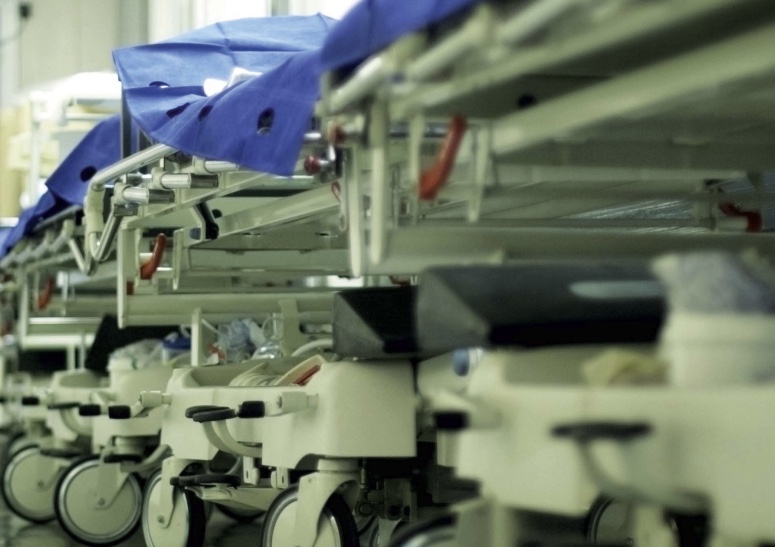Union declares ‘national emergency’ over ‘unsafe, undignified and unacceptable’ corridor care

The Royal College of Nursing (RCN) has declared a national emergency to address the crisis of “corridor care,” where patients receive treatment in overcrowded and inappropriate spaces such as corridors and waiting rooms.
This practice is deemed unsafe and unacceptable for both patients and healthcare staff.
The RCN is urging its members to speak out against this issue and join the fight to eradicate it from healthcare settings.
A recent RCN report reveals that more than 1 in 3 (37%) nursing staff in typical hospital settings delivered care in inappropriate areas on their last shift.
Additionally, 45% of nursing and midwifery staff surveyed in Wales reported that clinical care often took place in unsuitable environments.
Professor Nicola Ranger, Acting RCN General Secretary and Chief Executive, said: “This is a tragedy for our profession.
“Our once world-leading services are treating patients in car parks and store cupboards.”
“The elderly are languishing on chairs for hours and patients are dying in corridors.”
“The horror of this situation cannot be understated.”
“It is a national emergency for patient safety and today we are raising the alarm.”
“Treating patients in corridors used to be an exceptional circumstance.”
“Now it is a regular occurrence and a symptom of a system in crisis.”
“Patients shouldn’t have to end up at the doors of our emergency departments because they can’t get a GP appointment, a visit from a district nurse or a social care package.”
“But that is the reality. Corridor care is a scourge in our hospitals, but we know the solution is to invest in our entire health and care system – and its nursing workforce.”
Helen Whyley, Executive Director of RCN Wales, shared her observations of the NHS in crisis during her visits to clinical workplaces across Wales.
She described emergency departments overflowing with extra trolleys and patients sitting in chairs for extended periods, often in areas not equipped for clinical care.
This overcrowding has led to the routine “boarding” of extra patients in wards, fire escapes, and corridors without additional staff to care for them.
“Due to overcrowding, emergency departments are often bursting at the seams with extra trolleys in areas that are not equipped for clinical care and patients being sat in chairs for days and nights on end.”
“Nursing staff are doing what they always do: finding their way around problems to provide the best care that they can for their patients in difficult circumstances.”
“But they are experiencing moral distress and burnout.”
“They are upset that they cannot provide the dignity and fundamentals of care that their patients require, and they’re worried about some of the tough decisions they must make.”
The report outlines several related factors contributing to the problem of corridor care in Wales.
Workforce shortages are a significant factor, with an estimated 2,717 full-time equivalent registered nurse vacancies in NHS Wales.
This shortage compromises the delivery of safe and effective care and increases the burden on existing staff. Additionally, there has been a reduction in NHS bed capacity, as well as capacity in care homes and community nursing teams.
This decreased capacity leads to situations where patients cannot be accommodated in appropriate clinical settings, thus resulting in corridor care.
Problems with patient flow and delayed discharges further exacerbate the situation. Patients who are medically ready for discharge cannot leave because there is insufficient support available in community and social care settings.
This results in hospital beds being occupied by patients who should have been discharged, causing new admissions to be placed in corridors.
Decades of underfunding in both health and social care systems have led to increased demand and complexity in patient needs, which the current infrastructure and workforce cannot meet effectively.
This underfunding has impacted primary care, leading to more patients turning to A&E departments, which are already overburdened.
Moreover, there has been insufficient investment in preventive measures and community health services, which could alleviate some pressure from hospitals.
The lack of investment means that more people end up in hospitals for conditions that could have been managed in the community.
Sara Morgan, Senior Lecturer at the University of South Wales and RCN Emergency Care Forum member for Wales, said: “Patient flow is vital to the safe management of emergency departments (EDs). Overcrowding in EDs leads to long waits for assessment, delayed ambulance offload times and ultimately safe, timely and efficient care is compromised.”
“But patient flow must mean the right patient being moved to the right care environment at the right time.”
“It is vital to ensure primary and community care services are accessible and utilised to prevent unnecessary ED admissions.”
“Senior decision makers need to be working on the ED front door offering support in streaming and redirection.”
“We need an NHS that is able to deal with the fluctuation in demands, with a flexible workforce.”
“There needs to be a system change with the Welsh government investing in both hospital capacity and social care.”
Spotted something? Got a story? Email: [email protected]
Latest News
